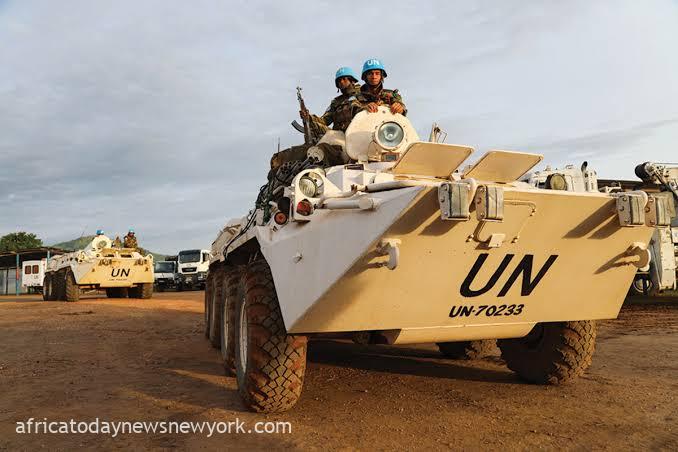The United Nations Security Council has reached consensus that the UN’s peacekeeping mission in the Democratic Republic of Congo will extend logistical support for the upcoming elections, as outlined in a correspondence.
The Democratic Republic of Congo, despite its abundant mineral resources, stands as one of the world’s poorest nations, underscoring a challenging backdrop as voters prepare for polls on Wednesday.
Kinshasa has made a dual request, seeking the help of the UN mission MONUSCO in transporting essential materials for the imminent general elections next week, even as it calls for the mission’s departure.
Although still present in three conflict-prone eastern provinces of the former Zaire, the UN mission MONUSCO is slated to withdraw as per the government’s request. Its mandate, however, permits the provision of logistical support for the elections.
‘Given the urgent need to begin preparing for the assistance that the DRC has requested… the members of the Security Council plan to inform the Secretary-General that Monusco is authorized to provide limited logistical support for the 2023 electoral process in any provinces requested by Congolese authorities,’ the letter from the Security Council president reads.
Read also: At Least 11 Killed As Militia Gang Attacks Eastern DR Congo
But the help will be ‘within the mission’s existing resources and without impacting its ability to deliver on previously mandated activities’.
Eastern Congo remains afflicted by armed groups, a lasting consequence of regional wars in the 1990s and 2000s. The M23, a notable faction, has seized substantial territories in the region through an offensive initiated in late 2021.
After nearly two decades, the Kinshasa government has insisted that the UN force depart, contending that its prolonged presence has proven ineffective in bringing an end to the ongoing conflict.
The Security Council is scheduled to vote next week on a withdrawal plan collaboratively crafted by Kinshasa and the UN mission.
At stake in the upcoming elections are positions for president and lawmakers across national, provincial, and local levels.
Confronted with the colossal scale of the country—2.3 million square kilometers (870,000 square miles)—the challenge is compounded by the absence of infrastructure in many areas.
A total of twenty-two candidates, including the incumbent Felix Tshisekedi running for a second term, are competing in the presidential race.

